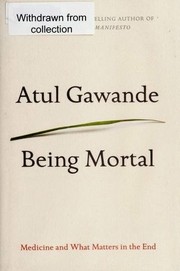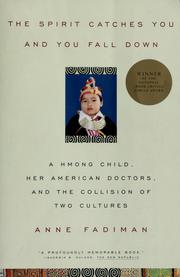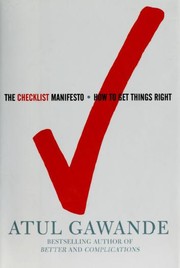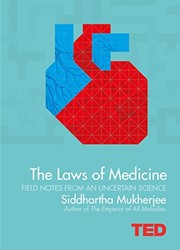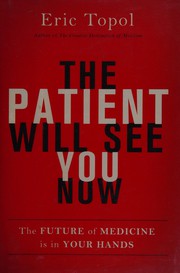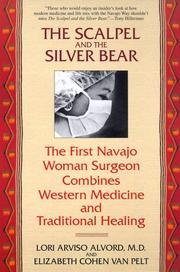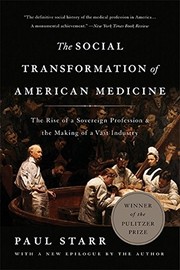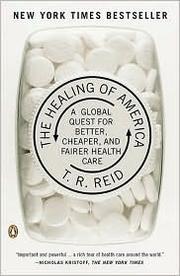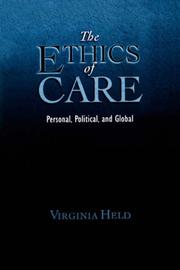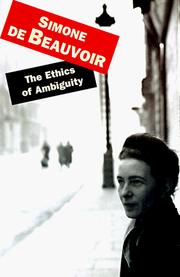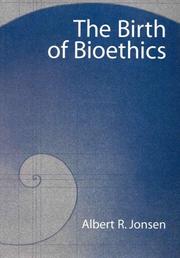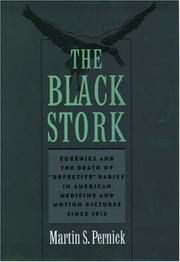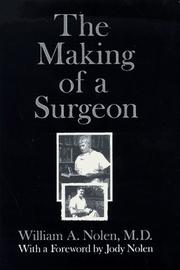Are you interested in diving into the complex world of medical ethics? Whether you’re a healthcare professional, a student, or just a curious reader, understanding the ethical dilemmas that arise in the medical field is crucial. To help you navigate this intricate topic, we’ve compiled a list of the 20 best books about medical ethics. From thought-provoking essays to compelling case studies, these books offer valuable insights and perspectives on the ethical challenges faced in healthcare. Whether you’re seeking to broaden your knowledge or engage in stimulating discussions, there’s a book on medical ethics for everyone on this list.
Contents
- 1 20 Best Medical Ethics Books
- 2 The Immortal Life of Henrietta Lacks
- 3 Being Mortal: Medicine and What Matters in the End
- 4 The Spirit Catches You and You Fall Down
- 5 The Emperor of All Maladies: A Biography of Cancer
- 6 When Breath Becomes Air
- 7 The Checklist Manifesto: How to Get Things Right
- 8 The Gene: An Intimate History
- 9 Do No Harm: Stories of Life, Death, and Brain Surgery
- 10 The Death of Expertise: The Campaign Against Established Knowledge and Why it Matters
- 11 The Laws of Medicine: Field Notes from an Uncertain Science
- 12 The Patient Will See You Now: The Future of Medicine is in Your Hands
- 13 The Scalpel and the Silver Bear: The First Navajo Woman Surgeon Combines Western Medicine and Traditional Healing
- 14 The Birth of the Pill: How Four Crusaders Reinvented Sex and Launched a Revolution
- 15 The Social Transformation of American Medicine: The Rise of a Sovereign Profession and the Making of a Vast Industry
- 16 The Healing of America: A Global Quest for Better, Cheaper, and Fairer Health Care
- 17 The Ethics of Care: Personal, Political, and Global
- 18 The Ethics of Ambiguity
- 19 The Birth of Bioethics
- 20 The Black Stork: Eugenics and the Death of ‘Defective’ Babies in American Medicine and Motion Pictures since 1915
- 21 The Making of a Surgeon
- 22 Final Thoughts on Best Medical Ethics Books
- 23
20 Best Medical Ethics Books
The Immortal Life of Henrietta Lacks
by Rebecca Skloot
The Immortal Life of Henrietta Lacks by Rebecca Skloot is a captivating nonfiction book that delves into the fascinating and ethical world of medical research. The author tells the story of Henrietta Lacks, a poor African American woman whose cells were taken without her knowledge in 1951 and became the foundation of countless medical breakthroughs. Skloot explores the ethical implications of using Lacks’ cells without her consent, and the impact it had on her family.
This book on medical ethics provides an in-depth look at the intersection of science, ethics, and race, and raises important questions about the rights of patients and the responsibilities of the medical community. Skloot’s meticulous research and engaging storytelling make this book a thought-provoking and eye-opening read for anyone interested in the ethical considerations of medical research. The Immortal Life of Henrietta Lacks is not just a book about medical ethics, but a powerful exploration of the human story behind one of the most important medical discoveries of the 20th century.
Being Mortal: Medicine and What Matters in the End
by Atul Gawande
Being Mortal: Medicine and What Matters in the End by Atul Gawande is a thought-provoking exploration of the intersection between medicine and the human experience of aging and mortality. As a renowned surgeon and writer, Gawande delves into the complex and often overlooked aspects of medical ethics, challenging the traditional approach to end-of-life care.
Gawande shares poignant stories of patients and their families, highlighting the importance of prioritizing quality of life and individual preferences in medical decision-making. He confronts the uncomfortable truths about aging, illness, and death, encouraging readers to reconsider the prevailing medical norms and embrace a more compassionate and person-centered approach to care.
This medical ethics book offers a powerful and insightful perspective on the ways in which modern medicine grapples with the inevitability of mortality, urging both healthcare professionals and the general public to engage in meaningful conversations about what truly matters at the end of life. Being Mortal is a compelling and essential read for anyone interested in redefining the way we approach aging, illness, and end-of-life care.
The Spirit Catches You and You Fall Down
by Anne Fadiman
The Spirit Catches You and You Fall Down by Anne Fadiman is a captivating non-fiction book that delves into the complex intersection of culture, medicine, and spirituality. It tells the story of a Hmong child with epilepsy and her family’s struggle to navigate the American healthcare system. The book explores the clash between the Hmong tradition and Western medicine, shedding light on the challenges faced by immigrant families dealing with healthcare in a foreign country.
Through the lens of this poignant and thought-provoking narrative, Fadiman raises important questions about cultural competence, empathy, and the ethical dilemmas that arise in the field of healthcare. The book offers a compelling exploration of the ethical and moral considerations that arise when different belief systems and medical practices collide. It is a must-read for anyone interested in the complexities of cross-cultural healthcare and the ethical implications of medical treatment. The Spirit Catches You and You Fall Down is a powerful and enlightening book on medical ethics.
The Emperor of All Maladies: A Biography of Cancer
by Siddhartha Mukherjee
The Emperor of All Maladies: A Biography of Cancer by Siddhartha Mukherjee is a groundbreaking book on the history, science, and human experience of cancer. Mukherjee, a practicing oncologist, takes readers on a journey through centuries of medical research and treatment, from the earliest documented cases of cancer to the cutting-edge technologies of today. This riveting account delves into the complexities of the disease, exploring its biological, social, and emotional impact on patients and society as a whole.
Through meticulous research and compelling storytelling, Mukherjee sheds light on the challenges and triumphs in the battle against cancer, offering a comprehensive understanding of the disease and the ongoing efforts to conquer it. The book not only provides valuable insights into the medical and scientific aspects of cancer but also delves into the ethical and moral dilemmas faced by healthcare professionals and patients. The Emperor of All Maladies is a must-read for anyone interested in the history of medicine, the human experience of illness, and the ongoing quest for a cure.
When Breath Becomes Air
by Paul Kalanithi
When Breath Becomes Air is a poignant memoir by Paul Kalanithi, a neurosurgeon who is diagnosed with terminal lung cancer just as he is on the verge of completing his training. The book offers a deeply personal and introspective look at mortality, the meaning of life, and the pursuit of knowledge and understanding in the face of illness.
As a medical ethics book, When Breath Becomes Air delves into the ethical dilemmas faced by doctors and patients, as well as the complex emotions and decisions that arise when dealing with life-threatening illnesses. Kalanithi’s exploration of his own mortality and the impact it has on his medical career provides a unique perspective on the intersection of medicine and humanity. The book is a powerful and thought-provoking reflection on what it means to live a meaningful life, and how to find purpose and peace in the midst of suffering.
The Checklist Manifesto: How to Get Things Right
by Atul Gawande
The Checklist Manifesto: How to Get Things Right by Atul Gawande is a compelling book on medical ethics that explores the power of using checklists in various fields to improve outcomes. Through engaging anecdotes and research, Gawande argues that in complex and high-stakes situations, such as surgery or aviation, even highly skilled professionals can benefit from the use of simple checklists. He demonstrates how checklists can help prevent errors, improve communication, and streamline processes, ultimately leading to better results.
Gawande draws on examples from diverse industries, from construction to investment banking, to illustrate the effectiveness of checklists in reducing human error and enhancing performance. He also delves into the psychology and sociology behind why checklists work, shedding light on how they can mitigate the inherent fallibility of human beings. With its engaging storytelling and thought-provoking insights, The Checklist Manifesto is not just a book about medical ethics, but a valuable resource for anyone interested in improving efficiency and accuracy in their professional and personal endeavors.
The Gene: An Intimate History
by Siddhartha Mukherjee
The Gene: An Intimate History by Siddhartha Mukherjee is a captivating exploration of the history and future of genetics. Mukherjee, a Pulitzer Prize-winning author and physician, delves into the complex and fascinating world of genetics, weaving together personal stories, scientific discoveries, and ethical dilemmas. This book provides a deep understanding of the role genes play in shaping our lives, from heredity to disease, and the potential for genetic manipulation.
With meticulous research and engaging storytelling, Mukherjee takes readers on a journey through the history of genetics, from Mendel’s pea plants to the latest breakthroughs in CRISPR technology. The Gene raises thought-provoking questions about the ethical implications of genetic engineering and the impact of genetic knowledge on our society.
Whether you are a science enthusiast, a medical ethics book, or simply curious about the fundamental building blocks of life, The Gene offers a compelling and informative look at the profound impact of genetics on our world.
Do No Harm: Stories of Life, Death, and Brain Surgery
by Henry Marsh
Do No Harm: Stories of Life, Death, and Brain Surgery by Henry Marsh is a captivating memoir that delves into the world of neurosurgery with raw honesty and insight. Marsh, a renowned neurosurgeon, takes readers on a journey through his career, sharing the triumphs and tribulations of working in a high-stakes medical field. The book offers a poignant exploration of the ethical dilemmas faced by doctors, making it a compelling read for anyone interested in the complexities of medical practice.
With vivid storytelling and a deep sense of humanity, Marsh brings readers into the operating room, offering a glimpse into the high-pressure decisions that shape the lives of patients and doctors alike. Through his experiences, he grapples with the moral implications of his work, making this book a thought-provoking reflection on the intricacies of medical ethics.
Do No Harm is a must-read for anyone seeking an intimate understanding of the challenges and responsibilities that come with practicing medicine, making it an essential book about medical ethics for both medical professionals and the general public.
The Death of Expertise: The Campaign Against Established Knowledge and Why it Matters
by Tom Nichols
The Death of Expertise: The Campaign Against Established Knowledge and Why it Matters by Tom Nichols is a thought-provoking book that delves into the challenges faced by experts in today’s society. Nichols, a professor and national security expert, explores the growing distrust of expertise and the consequences of this phenomenon in areas such as politics, science, and education. He argues that the rise of internet and social media has enabled the spread of misinformation, leading to a decline in respect for established knowledge and expertise.
Through engaging anecdotes and insightful analysis, Nichols makes a compelling case for the importance of expertise in decision-making and policy formulation. He also offers practical solutions for addressing the erosion of trust in experts, emphasizing the need for a return to a society that values and respects knowledge and expertise.
Whether you’re a policy maker, educator, or concerned citizen, this book is a must-read for anyone interested in understanding the challenges facing experts in our modern world.
The Laws of Medicine: Field Notes from an Uncertain Science
by Siddhartha Mukherjee
The Laws of Medicine: Field Notes from an Uncertain Science by Siddhartha Mukherjee is a thought-provoking book about medical ethics. In this insightful and engaging work, Mukherjee explores the complex and uncertain nature of the medical field, offering a deep dive into the principles and laws that govern the practice of medicine. Drawing on his own experiences as an oncologist, the author delves into the ethical dilemmas and moral complexities that arise in the world of healthcare. Through a series of compelling field notes, Mukherjee examines the uncertainties and challenges that physicians face when making life-altering decisions for their patients. With a blend of personal anecdotes, scientific insights, and philosophical reflections, The Laws of Medicine offers a unique perspective on the intricate relationship between science, ethics, and human well-being. This medical ethics book is a must-read for anyone interested in the intersection of medicine and morality.
The Patient Will See You Now: The Future of Medicine is in Your Hands
by Eric Topol
The Patient Will See You Now: The Future of Medicine is in Your Hands by Eric Topol is a thought-provoking book on medical ethics that delves into the revolutionary changes that are shaping the future of healthcare. Topol, a renowned cardiologist and digital medicine expert, explores the impact of technology on the practice of medicine, emphasizing the shift towards patient empowerment and personalized healthcare.
Through compelling anecdotes and insightful analysis, Topol discusses how the widespread use of smartphones, wearable devices, and big data is transforming the doctor-patient relationship and challenging traditional medical practices. He advocates for a patient-centered approach that prioritizes individualized care and informed decision-making.
This book about medical ethics offers a fascinating glimpse into the potential of digital health tools to revolutionize healthcare delivery and improve patient outcomes. Topol’s engaging writing style and comprehensive research make The Patient Will See You Now an essential read for anyone interested in the intersection of technology and medicine, and the ethical implications of these advancements.
by Lori Arviso Alvord and Elizabeth Cohen Van Pelt
The Scalpel and the Silver Bear is a captivating book about medical ethics that tells the inspiring story of Dr. Lori Arviso Alvord, the first Navajo woman to become a surgeon. In this memoir, Dr. Alvord shares her journey of blending Western medicine with traditional Navajo healing practices, offering a unique perspective on the intersection of modern healthcare and ancient healing traditions.
Readers will be drawn into Dr. Alvord’s personal experiences as she navigates the challenges of being a woman and a minority in the medical field, while also grappling with the ethical dilemmas that arise when combining different medical paradigms. The book delves into the complexities of cultural diversity, spirituality, and the importance of holistic care in a way that is both thought-provoking and deeply moving.
The Scalpel and the Silver Bear is a compelling exploration of medical ethics that will appeal to anyone interested in the intersection of traditional healing and modern medicine, and those who are passionate about promoting culturally sensitive and ethical healthcare practices.
The Birth of the Pill: How Four Crusaders Reinvented Sex and Launched a Revolution
by Jonathan Eig
The Birth of the Pill by Jonathan Eig is a fascinating book on medical ethics that delves into the incredible story of how four individuals—Margaret Sanger, Katharine McCormick, Gregory Pincus, and John Rock—revolutionized sexual health and reproductive rights. Through meticulous research and compelling storytelling, Eig chronicles the arduous journey these crusaders undertook to develop the first oral contraceptive pill.
Readers will be captivated by the obstacles and controversies these pioneers faced as they fought to bring their groundbreaking invention to the public. The medical ethics book highlights the societal and cultural barriers these trailblazers had to overcome in order to challenge the status quo and empower women to take control of their own bodies and reproductive choices.
Eig’s narrative skillfully weaves together the personal struggles and triumphs of these remarkable individuals, providing a thought-provoking exploration of the ethical considerations surrounding reproductive health and the impact of their work on society. The Birth of the Pill is a compelling and enlightening read that sheds light on a pivotal moment in the history of medical ethics.
The Social Transformation of American Medicine: The Rise of a Sovereign Profession and the Making of a Vast Industry
by Paul Starr
The Social Transformation of American Medicine: The Rise of a Sovereign Profession and the Making of a Vast Industry by Paul Starr is a groundbreaking book about medical ethics that explores the evolution of the American healthcare system. Starr delves into the historical, social, and political factors that have shaped the medical profession and the healthcare industry, providing a comprehensive understanding of how medicine has become a dominant force in American society. This meticulously researched and thought-provoking book on medical ethics examines the rise of medical professionalism, the development of medical education, the influence of medical technology, and the complex relationship between doctors, patients, and the government. Starr’s analysis sheds light on the ethical dilemmas and power dynamics within the healthcare system, making this medical ethics book an essential read for anyone interested in the intersection of medicine, ethics, and society.
The Healing of America: A Global Quest for Better, Cheaper, and Fairer Health Care
by T.R. Reid
The Healing of America: A Global Quest for Better, Cheaper, and Fairer Health Care by T.R. Reid is a captivating book on medical ethics that takes readers on a journey around the world to explore different healthcare systems. Reid delves into the complexities of healthcare in various countries, comparing and contrasting their approaches to providing medical care to their citizens. Through his engaging storytelling and thorough research, he uncovers the strengths and weaknesses of each system, offering valuable insights into how healthcare can be improved.
With a focus on accessibility, affordability, and quality of care, this medical ethics book sheds light on the challenges and successes of different healthcare models. Reid’s exploration is informative and thought-provoking, providing readers with a deeper understanding of the global healthcare landscape and sparking important conversations about the future of healthcare.
The Ethics of Care: Personal, Political, and Global
by Virginia Held
The Ethics of Care: Personal, Political, and Global by Virginia Held is a thought-provoking book that delves into the complex and often overlooked topic of caring relationships. Held challenges the traditional ethical theories that have dominated the discourse and offers a fresh perspective on the importance of care in personal, political, and global contexts. The book explores the ethical implications of care in various relationships, including those between family members, friends, and communities, as well as its impact on social and political structures.
Through insightful analysis and compelling arguments, Held presents a compelling case for the incorporation of care into ethical considerations, shedding light on the interconnectedness of personal and political ethics. This book is a must-read for anyone interested in exploring the profound impact of care on our moral and ethical frameworks. Whether you are a student, scholar, or simply curious about the dynamics of caring relationships, The Ethics of Care offers a valuable and enlightening perspective on this crucial aspect of human interaction.
The Ethics of Ambiguity
by Simone de Beauvoir
The Ethics of Ambiguity by Simone de Beauvoir is a thought-provoking exploration of existentialism and the ethical implications of living in a world filled with ambiguity and uncertainty. In this insightful book, de Beauvoir delves into the complexities of human existence and the moral responsibilities that arise from our freedom and individuality. She argues that in a world devoid of absolute truths, individuals must embrace their freedom and make ethical choices that align with their values and beliefs.
Through a compelling blend of philosophy and social commentary, de Beauvoir challenges readers to confront their own ethical dilemmas and take responsibility for their actions in a world rife with ambiguity. With its profound insights and thought-provoking analysis, The Ethics of Ambiguity offers a compelling perspective on the human experience and the ethical challenges we face in our everyday lives.
The Birth of Bioethics
by Albert R. Jonsen
The Birth of Bioethics by Albert R. Jonsen is a groundbreaking book on medical ethics that delves into the historical origins and evolution of the field. Jonsen takes readers on a fascinating journey through the development of bioethics, exploring its intersection with medicine, philosophy, and law. Through compelling narratives and insightful analysis, the author highlights key turning points and ethical dilemmas that have shaped the discipline of medical ethics.
This book about medical ethics is essential reading for anyone interested in the moral and ethical challenges that arise in healthcare and biomedical research. Jonsen’s comprehensive exploration of the birth and growth of bioethics provides valuable context for understanding the complex ethical issues facing the medical community today. Whether you are a healthcare professional, researcher, student, or simply curious about the ethical dimensions of medicine, The Birth of Bioethics offers a thought-provoking and enlightening perspective on this critical aspect of modern healthcare.
The Black Stork: Eugenics and the Death of ‘Defective’ Babies in American Medicine and Motion Pictures since 1915
by Martin S. Pernick
The Black Stork: Eugenics and the Death of ‘Defective’ Babies in American Medicine and Motion Pictures since 1915 by Martin S. Pernick is a thought-provoking book on medical ethics. Pernick delves into the disturbing history of eugenics and how it influenced American medicine and society in the early 20th century. The book explores the dark and controversial practice of sterilization and euthanasia of individuals deemed “defective” or “unfit” by the eugenics movement.
Pernick also examines how these ideas were perpetuated and normalized through motion pictures, further shaping public opinion and policy. The Black Stork is a chilling account of the intersection of medical ethics and social ideologies, shedding light on a troubling chapter in American history.
Through meticulous research and compelling storytelling, Pernick forces readers to confront the ethical implications of eugenics and its lasting impact on modern medicine. This book about medical ethics raises important questions about the role of science in shaping societal norms and the responsibility of healthcare professionals to uphold ethical standards.
The Making of a Surgeon
by William A. Nolen
The Making of a Surgeon by William A. Nolen is a captivating memoir that takes readers on a journey through the author’s experiences as a surgical resident. Set in the mid-20th century, Nolen provides a candid and gripping account of the challenges, triumphs, and ethical dilemmas he faced during his training. This book offers a unique insider’s perspective on the intense physical and emotional demands of surgical residency, as well as the personal sacrifices and ethical decisions that come with the territory.
Through vivid storytelling and introspection, Nolen delves into the complexities of the medical profession, offering valuable insights into the world of surgery and the ethical considerations that shape medical practice. The Making of a Surgeon is not only a compelling narrative of one man’s journey to becoming a surgeon but also a thought-provoking exploration of medical ethics, resilience, and the human experience in the high-stakes world of medicine. This timeless classic continues to resonate with readers, making it an essential read for anyone interested in the field of medicine or the profound impact of ethical decision-making in healthcare.
Final Thoughts on Best Medical Ethics Books
Medical Ethics is a complex and important field, and these 20 books about medical ethics provide valuable insights and perspectives on the subject. Whether you’re a healthcare professional, student, or simply interested in the ethical dilemmas within the medical field, these books offer a wealth of knowledge and provoke thought-provoking discussions. From examining the doctor-patient relationship to exploring the ethical implications of medical technology, these books cover a wide range of topics and are essential reads for anyone interested in medical ethics.
Which book about Medical Ethics is best?
The best book on Medical Ethics can vary with personal preference, but three widely recommended titles are:
- The Immortal Life of Henrietta Lacks by Rebecca Skloot,
- Being Mortal: Medicine and What Matters in the End by Atul Gawande,
- The Spirit Catches You and You Fall Down by Anne Fadiman.
Each offers valuable insights and could be a great starting point.
What are the best books to learn about Medical Ethics?
For those looking to learn about Medical Ethics, there is a wealth of literature that can provide a comprehensive understanding of the subject. Some of the most highly recommended books include:
- The Immortal Life of Henrietta Lacks by Rebecca Skloot,
- Being Mortal: Medicine and What Matters in the End by Atul Gawande,
- The Spirit Catches You and You Fall Down by Anne Fadiman,
- The Emperor of All Maladies: A Biography of Cancer by Siddhartha Mukherjee,
- When Breath Becomes Air by Paul Kalanithi,
- The Checklist Manifesto: How to Get Things Right by Atul Gawande,
- The Gene: An Intimate History by Siddhartha Mukherjee,
- Do No Harm: Stories of Life, Death, and Brain Surgery by Henry Marsh,
- The Death of Expertise: The Campaign Against Established Knowledge and Why it Matters by Tom Nichols,
- The Laws of Medicine: Field Notes from an Uncertain Science by Siddhartha Mukherjee
These books offer a range of perspectives on Medical Ethics, covering various aspects and approaches to the subject.
What are the best books about Medical Ethics?
The best books about Medical Ethics are:
- The Immortal Life of Henrietta Lacks by Rebecca Skloot,
- Being Mortal: Medicine and What Matters in the End by Atul Gawande,
- The Patient Will See You Now: The Future of Medicine is in Your Hands by Eric Topol,
- The Scalpel and the Silver Bear: The First Navajo Woman Surgeon Combines Western Medicine and Traditional Healing by Lori Arviso Alvord and Elizabeth Cohen Van Pelt,
- Do No Harm: Stories of Life, Death, and Brain Surgery by Henry Marsh,
- The Checklist Manifesto: How to Get Things Right by Atul Gawande.
Each offers unique insights into the subject. While these books about Medical Ethics are highly regarded, it’s important to note that any list of ‘best’ books is subjective and reflects a range of opinions.
What are the best Medical Ethics books of all time?
Choosing the best Medical Ethics books of all time can vary depending on who you ask, but five titles that are often celebrated include
- The Immortal Life of Henrietta Lacks by Rebecca Skloot,
- Being Mortal: Medicine and What Matters in the End by Atul Gawande,
- When Breath Becomes Air by Paul Kalanithi,
- Do No Harm: Stories of Life, Death, and Brain Surgery by Henry Marsh,
- and The Patient Will See You Now: The Future of Medicine is in Your Hands by Eric Topol.
Each of these books has made a significant impact in the field of Medical Ethics and continues to be influential today.


